When you’re suffering from an emotional crisis because of a mental health disorder or an addiction, you need immediate intervention. The inpatient programming at East Tennessee Behavioral Health helps adults regain a sense of safety and emotional stability, allowing them to function more like themselves again.
About Our Adult Inpatient Program
Sometimes the symptoms of a mental health or substance use disorder can become so severe and long-lasting that you struggle to function. When this happens, inpatient treatment is usually the best way to regain control of the symptoms that have been so disruptive to your daily life.
East Tennessee Behavioral Health offers three adult inpatient units based on age and concern:
- Thought disorder and dual diagnosis unit – This unit serves adults age 18 and older who are struggling with a thought disorder such as schizophrenia, schizoaffective disorder, or brief psychotic disorder. We also support people who have both a mental health disorder and an addiction, or a dual diagnosis.
- Mood disorder unit – This unit serves adults age 18 and older who are suffering from depression.
- Geriatric unit – This unit serves seniors age 65 and older who have a mental health concern such as depression, an anxiety disorder, or posttraumatic stress disorder (PTSD). We can also support someone who has an opioid addiction if this is the primary diagnosis. Someone who is struggling with an addiction to another substance must have a primary mental health diagnosis.
Hospitalization is typically a short-term experience, because the goal is for you to start functioning well enough to transition to a lower level of care or return home safely. Most adults receive care at our facility in Knoxville, Tennessee, for about seven days, while seniors receive care for about 10-12 days.
However, there isn’t a set timeline when it comes to healing from a mental illness or an addiction. For this reason, we will continually monitor your progress to determine the best time for you to take the next steps in your healing process.
Therapies & Services
The path to healing looks different for everyone, so it’s crucial that each person receives care that reflects their unique needs and goals. At East Tennessee Behavioral Health, we take special care to identify what therapies and services may best support your recovery.
This begins with a comprehensive assessment of your medical history and symptoms, along with a physical exam. We’ll also discuss your goals for seeking care at our Knoxville, Tennessee, facility. Based on this information, we’ll custom-build a treatment plan that is designed to address your specific situation.
We primarily use group therapy in our inpatient programming, offering a variety of groups each day that cover topics like setting healthy boundaries, anger management, and recovery and relapse. Your care team will customize these topics to reflect the treatment goals you’ve set.
You may also take part in individual counseling and family therapy if your care team recommends these services. Other services you may receive during your time with us include medication management, basic medical care, and detoxification services.
Throughout your time in our adult inpatient program, you’ll likely engage in elements of therapies such as cognitive behavioral therapy (CBT), dialectical behavior therapy (DBT), and motivational enhancement therapy (MET). We use these therapies to help patients change harmful thought patterns and make positive behavioral changes.
Continuing Care
Although your inpatient stay at East Tennessee Behavioral Health will likely be short, we will ensure that you have the resources you need to experience lasting success after you transition out of our care.
From the time you are admitted to our facility in Knoxville, Tennessee, your primary therapist and multidisciplinary treatment team will begin to assess your outside resources to determine what supports you’ll need at discharge. Upon discharge, you will receive a detailed aftercare plan that includes our recommendations for ongoing care, any necessary referrals, and areas for continued focus.
Some of the most common aftercare services we recommend include:
- Residential treatment
- Partial hospitalization programming (PHP)
- Intensive outpatient programming (IOP)
- Weekly or biweekly one-on-one outpatient counseling
- Medication management with a psychiatrist
- Specialized intervention services
- Community support groups
Suffering from an emotional crisis due to a mental health or substance use disorder can be overwhelming. But with the help of the experts at East Tennessee Behavioral Health, you can rediscover hope for a better tomorrow.
This content was written on behalf of and reviewed by the clinical staff at East Tennessee Behavioral Health.















